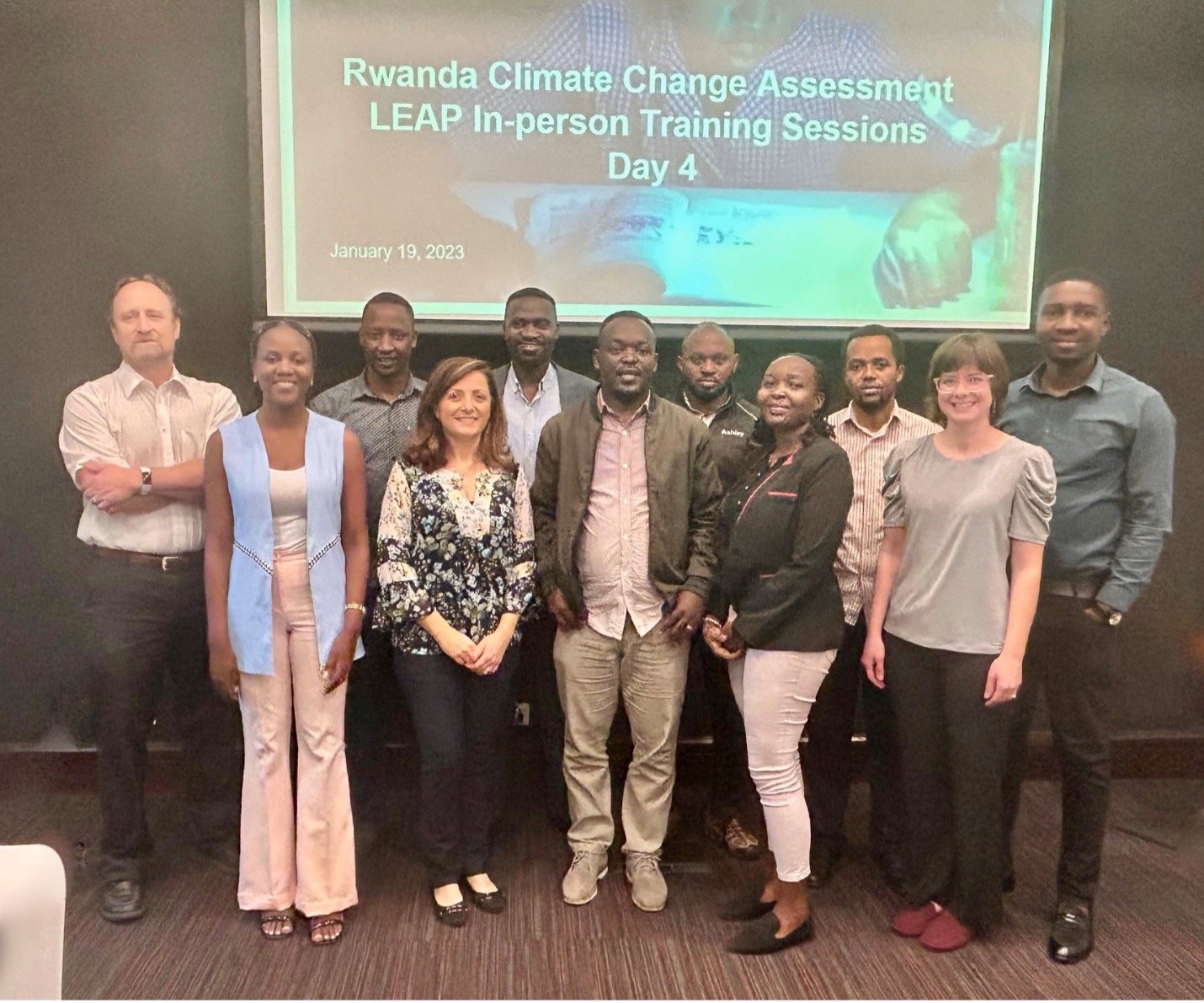Assessment of Rwanda Energy Capacity Expansion and Net Zero Climate Goals
Members of REG and MININFRA evaluate energy supply and resource management options and emissions reductions through the LEAP model and CCS technical assistance.
May 4, 2023. In collaboration with local partners, the Rwanda Energy Group (REG), and the Ministry of Infrastructure and Planning (MININFRA), the Center for Climate Strategies (CCS) recently completed a comprehensive modeling assessment and related tool installation and training for least cost, net zero, long-term strategies for energy capacity expansion and climate change objectives under the USAID Power Africa East Africa Energy Program (EAEP).
Building on least cost power development and carbon neutral scenarios modeled by CCS for the Rwanda power sector with the Low Emissions Analysis Platform (LEAP) tool, CCS evaluated the impact of a portfolio of technology-based mitigation strategies across energy and non-energy (natural resources) sectors. This in-depth analysis demonstrates how Rwanda can build on least cost power development planning to achieve its net zero goal by 2050 through specific implementation programs.
Findings indicate that implementation of solar photovoltaic generation technologies, including utility solar, distributed solar, agrivoltaic solar, and floating solar (all potentially incorporating electricity storage) are scalable to the pace of Rwanda’s developing electricity needs and would meet climate and energy objectives. Other local technologies and resources that may contribute to Rwanda’s greenhouse gas (GHG) emissions targets include landfill gas-based generation, biomass- and municipal solid waste-fired generation, wind power, and pumped-storage hydroelectric power to serve loads when solar power is not available (during the evening peak and at night).
Representatives of the Government of Rwanda and CCS have been engaged in energy planning and capacity building since 2020 through the USAID Power Africa East Africa Energy Program.
Since 2020, CCS has supported the Government of Rwanda through EAEP by providing capacity building for long-term energy planning and energy systems modeling development using an integrated modeling framework and multi objective approach. This approach has been focused on impacts of GHG emissions as well as the costs and savings from full implementation of the least cost, net zero scenario. Through training, tool installation, and active learning by doing with REG and MININFRA, the LEAP model will be available for continuous use and updating for national energy and climate planning in Rwanda.
For a discussion around this technology and economic assessment approach, please read our blog “Informing the Race to Net Zero” and see related studies conducted by CCS in Rwanda and other nations on our website.


